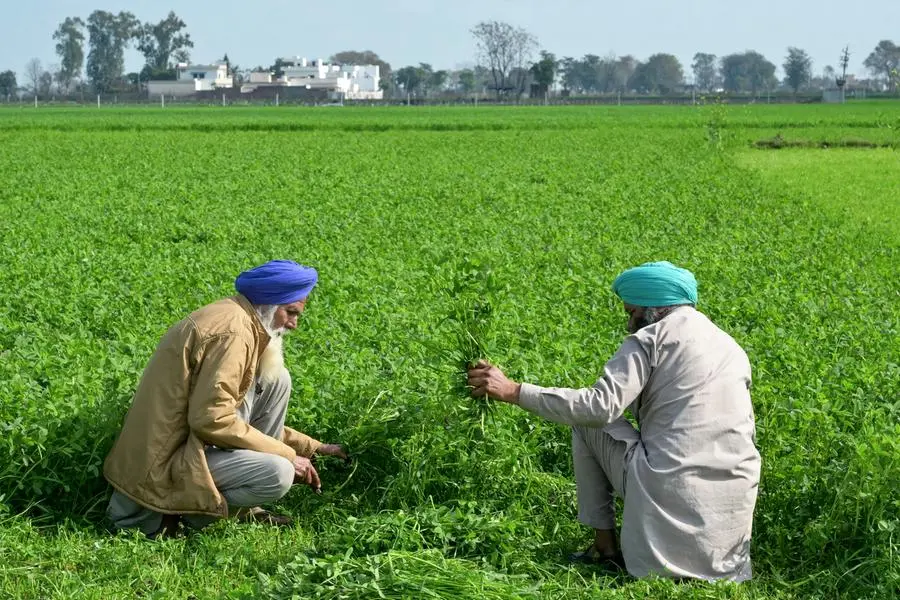PHOTO
Indian police erected barricades and banned public gatherings Monday ahead of threatened protests by thousands of farmers demanding minimum crop prices in a bid to stop them from marching on parliament.
Long convoys of tractors gathered on borders between the capital New Delhi and neighbouring Haryana state, with police using a fearsome blockade of metal spikes, barriers and cement blocks to close key highways.
Farmers have called for a "Delhi Chalo", or "March to Delhi", echoing protests in January 2021 when farmers breached barricades and marched into the city on Republic Day.
Farmers in India have political heft due to their sheer numbers, and the threat of renewed protests comes ahead of national elections likely to begin in April.
Two-thirds of India's 1.4-billion population draw their livelihood from agriculture, accounting for nearly a fifth of the country's GDP, according to government figures.
"Farmers from across the country are prepared to march on Delhi starting Tuesday if the government doesn't meet our demands," Swaran Singh Pandher, leader of a nationwide farmers' association told AFP.
As well as a fixed minimum crop price, other demands include pensions and the writing off of loans.
Police in Delhi have banned public gatherings of more than five people.
Protests by farmers against agricultural reform bills in November 2020 lasted for more than a year, forming the biggest challenge to Prime Minister Narendra Modi's government since it came to power in 2014.
Tens of thousands of farmers then set up makeshift camps, with at least 700 people killed during the protests.
In November 2021, a year after protests began, Modi pushed through parliament the repeal of three contentious laws that farmers claimed would let private companies control the country's agriculture sector.
Government ministers are expected to meet with farming leaders on Monday to talk the protesters down.
Thousands of Indian farmers die by suicide every year because of poverty, debt and crops affected by ever more erratic weather patterns caused by climate change.
Samyukta Kisan Morcha (SKM), a key farmers' association, expressed its "strong discontent and anger" at police action to block protests, but said it was not taking part in the planned march on Tuesday.
It instead called for strikes on Friday to press for their demands.
"The efforts to suppress the people's protest will be in vain", SKM said in a statement.





















